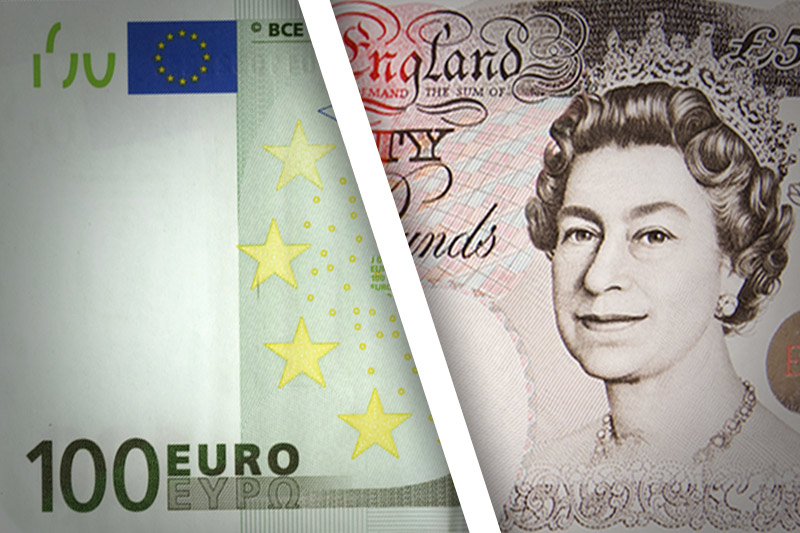Investing.com - The euro was steady close to nine-month highs against the pound on Tuesday as growing confidence over the improving outlook for the euro zone economy continued to support the single currency.
EUR/GBP hit 0.8296 during European morning trade, the session low; the pair subsequently consolidated at 0.8307, slipping 0.19%.
The pair was likely to find support at 0.8267, Monday’s low and near-term resistance at 0.8325, Monday’s high and a nine-month high.
Earlier Tuesday, official data showed that the euro zone trade surplus widened to EUR11 billion in November from EUR7.4 billion in October, as exports rose 5%.
A separate report showed that Germany’s economy contracted by 0.5% in the fourth quarter, bringing the annual rate of growth to 0.7%, a sharp slowdown from 3% growth in 2011.
In the U.K., official data showed that consumer inflation remained unchanged for the third successive month in December.
The Office for National Statistics said consumer price inflation came in at 2.7%, unchanged from November and broadly in line with expectations, as increases in electricity and gas bills were offset by falling fuel costs.
Month-over-month, consumer price inflation rose 0.5%, in line with expectations, after rising 0.2% in November.
Sentiment on sterling remained fragile as pressure on the government to renegotiate the terms of its European Union membership mounted.
The euro pulled away from 11-month highs against the U.S. dollar, with EUR/USD down 0.27% to 1.3343 and was sharply lower against the stronger yen, with EUR/JPY down 1.105 to 118.41.
The yen strengthened broadly after Japan’s economy minister said Tuesday that a weak yen could have a negative impact on the economy by pushing up import prices.
Later in the day, the U.S. was to publish government data on retail sales, as well as official data on producer price inflation and manufacturing activity in New York state.
EUR/GBP hit 0.8296 during European morning trade, the session low; the pair subsequently consolidated at 0.8307, slipping 0.19%.
The pair was likely to find support at 0.8267, Monday’s low and near-term resistance at 0.8325, Monday’s high and a nine-month high.
Earlier Tuesday, official data showed that the euro zone trade surplus widened to EUR11 billion in November from EUR7.4 billion in October, as exports rose 5%.
A separate report showed that Germany’s economy contracted by 0.5% in the fourth quarter, bringing the annual rate of growth to 0.7%, a sharp slowdown from 3% growth in 2011.
In the U.K., official data showed that consumer inflation remained unchanged for the third successive month in December.
The Office for National Statistics said consumer price inflation came in at 2.7%, unchanged from November and broadly in line with expectations, as increases in electricity and gas bills were offset by falling fuel costs.
Month-over-month, consumer price inflation rose 0.5%, in line with expectations, after rising 0.2% in November.
Sentiment on sterling remained fragile as pressure on the government to renegotiate the terms of its European Union membership mounted.
The euro pulled away from 11-month highs against the U.S. dollar, with EUR/USD down 0.27% to 1.3343 and was sharply lower against the stronger yen, with EUR/JPY down 1.105 to 118.41.
The yen strengthened broadly after Japan’s economy minister said Tuesday that a weak yen could have a negative impact on the economy by pushing up import prices.
Later in the day, the U.S. was to publish government data on retail sales, as well as official data on producer price inflation and manufacturing activity in New York state.
